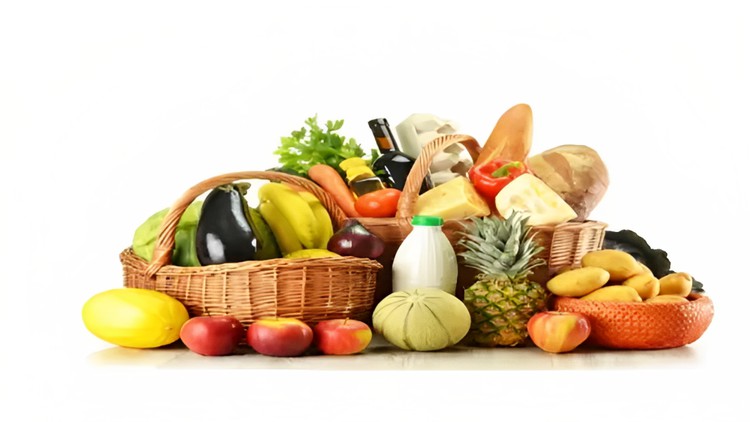
Self Learning Course
What you will learn
Courses may find employment in a variety of fields, including the food industry, public health, research, and quality control.
Trained to identify and control the growth of harmful microorganisms in food and to implement food safety measures to prevent contamination.
A course in probiotics can provide insight into how probiotics may influence the balance of the gut microbiome and promote good health.
It can also provide a deeper appreciation of the science behind the food we consume and the potential health benefits of certain food products
Add-On Information:
Note➛ Make sure your 𝐔𝐝𝐞𝐦𝐲 cart has only this course you're going to enroll it now, Remove all other courses from the 𝐔𝐝𝐞𝐦𝐲 cart before Enrolling!
- Course Overview:
- This Self Learning Course navigates the dual impact of microbes on food: from spoilage and safety hazards to their beneficial roles in fermentation and health.
- Explore the intricate science underpinning the microbial world in our food systems and its profound connection to human well-being.
- Uncover the dynamic interplay between foodborne microorganisms, processing methods, and consumer health, focusing on a holistic view.
- What You Will Gain:
- Master the diverse ecology of foodborne microbes, distinguishing pathogenic, spoilage, and beneficial species in various food environments.
- Delve into advanced molecular techniques and rapid diagnostics for microbial identification and quantification.
- Grasp the fundamental principles of microbial growth kinetics, understanding how environmental factors dictate their survival.
- Investigate innovative food preservation technologies, from thermal processing to high-pressure techniques, for effective microbial control.
- Appreciate the science of fermented foods, understanding how specific microbes create unique flavors, textures, and nutritional profiles.
- Deconstruct the mechanisms of action for various probiotic strains, learning their host interactions, including immune modulation.
- Critically evaluate probiotic product efficacy and safety, distinguishing validated claims from marketing hype.
- Examine the relationship between prebiotics, synbiotics, and the gut microbiome for synergistic health promotion.
- Understand global regulatory frameworks and labeling requirements for food microbiology standards and probiotic products.
- Analyze real-world case studies of food contamination and successful probiotic interventions.
- Career Edge:
- Develop an expert-level understanding of microbial risk assessment and management strategies within the food supply chain.
- Acquire specialized knowledge for roles in product development, quality assurance, and research within the functional foods and nutraceutical industries.
- Position yourself as a credible resource for communicating complex scientific information regarding food safety and probiotic benefits.
- PROS:
- Flexible Learning Path: Study at your own pace, integrating advanced scientific exploration into your schedule.
- Deepened Scientific Literacy: Cultivate a sophisticated understanding of biological processes influencing food quality, safety, and health.
- Informed Consumer Choices: Equip yourself with evidence-based knowledge about diet, fermented foods, and probiotic supplements.
- Interdisciplinary Insight: Bridge microbiology, food science, and human health, offering a holistic perspective.
- CONS:
- Requires Self-Discipline: Success hinges on strong personal motivation and independent study habits without direct instructor guidance.
English
language